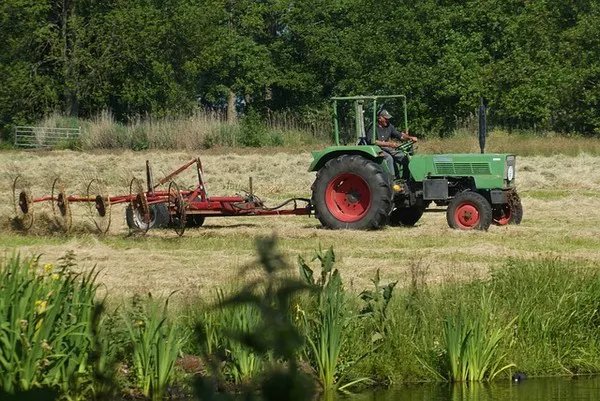In an olive grove near Athens, Konstantinos Markou, a grower, uncovers the stump of a roughly 150-year-old tree, one among the 15 illegally felled on his neighbor’s land by thieves driven by the surging prices of olive oil. These criminal activities are on the rise across Mediterranean regions, including Greece, Spain, and Italy, where olive-growing heartlands are grappling with drought, rising production costs, and the impact of climate change. Warehouse break-ins, adulteration of premium oil, falsification of shipping data, and even the theft of entire trees from unguarded groves have become prevalent.
Markou highlights the audacity of the olive robbers, who sometimes outproduce the legitimate owners themselves. Growers, already burdened with high production costs and the effects of climate change, such as warmer winters, increased flooding, and intense forest fires, are left with fewer olives. In response, Italian growers in the southern Puglia region are urging the formation of an agriculture division within the police force, while Greek farmers seek the reinstatement of a rural police division that was disbanded in 2010. In Spain, a company has developed olive-shaped tracking devices in a bid to catch the thieves.
The olive groves surrounding Athens hold a deep-rooted tradition dating back to ancient times, with some trees standing for centuries. The thefts primarily target branches, but when an entire tree is stolen, the thieves often cut it into pieces and transport the wood to lumber yards or firewood vendors, while the olives are taken to an oil mill. Neilos Papachristou, who runs an olive mill and grove, explains that the thieves not only steal the olives but also inflict severe damage to the trees, which can take several years to recover.
The rise in thefts has compelled some growers to resort to early harvesting, sacrificing higher yields to protect their trees from long-term harm. Christos Bekas, the owner of 5,000 olive trees, has experienced multiple raids, leading him to opt for an early harvest. However, this has resulted in the need for more than 2.5 times the amount of olives by weight to produce a kilogram of oil compared to the previous year. Bekas laments the situation, emphasizing the distressing conditions growers face even after spending nights guarding their fields.
The global olive oil market, after experiencing decades of growth, has been disrupted by the nearly two-year drought in Spain, which typically supplies around 40% of the world’s olive oil. This drought is projected to reduce global production to 2.5 million metric tons this crop year, down from 3.4 million the previous year. As a result, benchmark prices for extra virgin oil in Spain, Greece, and Italy have tripled since 2019, reaching 9 euros ($4.35 per pound) in September.
Consumers are also feeling the impact of these challenges, with prices soaring. In Greece, the cost of a 1-liter bottle of extra virgin oil has risen from $8 to as much as $15 this year. Authorities have begun taking action against the olive thieves, with Spanish police announcing the recovery of 91 tons of stolen olives in recent weeks and six individuals being arrested in Greece in February for the theft of 8 tons of olive oil from various warehouses.
Farmers near the Italian city of Bari express concern over the increasing audacity of thieves, who not only steal olives but also tractors and expensive equipment. The regional agricultural association has called for police assistance following incidents where 100 olive trees were either destroyed or severely damaged in a single occurrence. Gennaro Sicolo, the association’s leader, emphasizes the enormous economic damage caused and stresses the need for farmer protection.
Markou, the Greek grower, describes the tree-cutting as a felony, lamenting the loss of historical heritage caused by these criminal acts.

